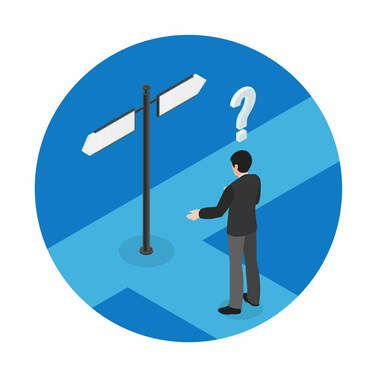 Online reviews remain one of those things a majority of potential customers observe before patronizing a vendor. Zendesk reveals that 88 per cent of customers has been influenced by online customer service review when making purchasing decisions. It, therefore, implies that the more good reviews you get, the more likely you gain more customers and the more bad reviews you have, the less likely you gain additional customers. Unfortunately, bad reviews could be given about your products or services. When such happens, it might make you feel like online reviewers are holding you hostage. However, you can deal with them in such a manner that the impact they have on your practice’s reputation is minimized. The purpose of this article, therefore, is to acquaint you with what leads customers to post negative reviews, and how you can respond to or manage them. What leads to bad reviews? Often, getting a bad review is hugely unfair. After expending your effort and time in ensuring you provide good customer service, a customer with sour grapes may decide to undermine your expected high productivity by giving you a bad review just because they had a bad day. The unfair remark might tempt you to lash out in return. Unfortunately, following such an intuition may pose a serious threat to your practice. However, some buyers may get defected products. This will leave them with no better choice than to leave bad reviews. In this case, the reviews are justified. The great news is that only a few customers say they post bad reviews out of vengeance. Though it may seem that way, a majority of customers complain online because of the bad experience they had with your product and their wish for you to hear them out and respond to them. Therefore, it is important to give them responses as their reviews help to inform or warn other customers as regards the quality of your practice. How do you deal with bad reviews? When you get a bad review, never be defensive; rather, be courteous and professional in your response. Even if the customer remains hellbent in their claimed information which may be false, make an apology; include a positive statement to negate the negative statements they made; finally, thank the customers for their feedback and ask if you could speak with them further offline. When the customer agrees to this, take the issue offline. Instead of responding to an adverse review in a public forum, a private email chat will be better. This will prevent further damage to your practice. Send out an online survey to every customer that patronizes you. It is a great way to determine those who had a bad experience, as well as receive feedback on ways of improving the overall experience for all clients. If the bad review was left due to a defective product, apologize and offer the customer a refund, or a new, free product. You may also offer a more expensive one to make the customer satisfied and show you care. Try out online review websites such as Social Mention or Review Trackers to give yourself an online presence. Don't be alarmed if you have 2-3 bad reviews. Statistics show that customers think most the positive reviews a vendor gets are fake if they don't have at least one or two bad ones. Take proactive measures of gathering enough good reviews to overwhelm possible bad reviews. You can put a call to clients after service delivery. It can help to shelve unattractive reviews. Also ,Taking some bad reviews on their merits might be important; you can learn about the area of your practice that could benefit from such need for improvement, for example improving your QA process.
3 Comments
 Before importing your goods and to prevent likely problems in the clearance of your merchandise, it is recommended that you familiarize yourself with the Customs and Border Protection of the United States. When your products arrive from their foreign destination, you have to shepherd them through customs, as an importer. This is usually be done through a customs broker. This is because you can’t take your merchandise through customs unless you possess an import license (which requires taking a government-administered test). Therefore, you are required to get acquainted with some tips, which will be provided here. Know the customs rules Each country has distinct customs regulations. It is required for you to get yourself familiar with these rules before engaging in any import process. With this knowledge, you will know what items you can import. The United Kingdom, the United States, and European governments provide customs information on their websites. Entry process Upon the arrival of a shipment to the United States, the importer (or customs broker) files entry documents for such products or goods with the port of entry’s director. The CBP then authorizes delivery of the merchandize, after the payment of estimated duties. Examination The shipment could either be examined or its examination waived. Shipment may get conditional release authorizations upon its departure from the origin country and up to just five days before its landing in the United States, for instance. The shipment is released when no legal or regulations violations are detected. Entry for warehouse If an importer wishes to delay the release of their shipment, they may have the cargo placed in a CBP-bonded warehouse for up to five years from the date of importation. During those years, the goods could be exported overseas without any need for duty payment. Compliance testing Certain items are always examined to ensure their conformity with legal safety standards. For instance, some foods and beverages may not pass the examination as a result of the standards in place by the Food and Drug Administration. The rapid increase in portable devices, for instance, has made quality inspectors to carry out some tests such as substance, EMC, or electrical safety. For instance, substance regulations, like REACH in the European Union restricts certain substances in some consumer goods. Such substances include cadmium, phthalates, lead, and formaldehyde, thus, making compliance testing mandatory. An importer, therefore, may select the extent to which its products shall be tested. The cost charged by testing companies depends on the number of substances and the number of variations (such as coating, colors, and component) of the materials. Going through customs is often an unavoidable process while importing products; therefore, these are the few tips that will save you the time you would have spent with the customs officer. Overall, ensure you employ the service of reputable and experienced customs brokers, and test your products at a certified, respectable laboratory. Importing and distributing non-compliant goods often result in a forced recall, major fines, or even litigation. So just make sure you know all there is to know about customs and regulations. Good luck!  Alibaba Group has evolved over the years into a global scale leading company in the online and e-commerce sector. Today, Alibaba conducts world-class wholesale and retail online trade marketplace. Placing an order on Alibaba is quite difficult. This is because of the bad services provided by some suppliers. Due to the problems encountered, it is very essential to identify the right suppliers. Problem Faced While Looking for Good Supplier Good Samples, bad product In a lot of the cases, the supplier sends excellent samples of the product , in order to convince the buyer to seal the deal . But- after the buyer places the order, and gets the shipment, he realizes the quality of the final products is very poor. This way the buyer can suffer from bad product reviews while his business goes down the drain. Counterfeit In a wide variety of orders, the products supplied are not a genuine model of what you order. According to the official Xinhua news agency More than 40% of goods sold online in China during 2014 were either counterfeit or of bad quality. Money for nothing In this particular case, you send your money to the supplier before you get the final product, And you never hear from them again. This means you receive NOTHING in return for your money. of course the financial damage could be immense, depending on the quantity and the kind of product. Extra payment Few days after paying for your order, your supplier contacts you and ask for extra payment to cover customs fees. If you refuse to pay, they say your goods can’t be exported out of China. What can you do to prevent this? Finding a good suppliers can be a little rough and give you real headache if you don’t know what you’re doing. There are several things you need to pay attention to when identifying a supplier on Alibaba. Look for Gold suppliers Gold suppliers are those suppliers that pay some fees to Alibaba. When you search for some product on Alibaba, you tend to see products from gold suppliers first. Alibaba also does some verification of these suppliers to check their legitimacy. Make sure details are Verified On the homepage of the supplier, make sure the supplier’s location, business type and year of establishment are verified by Alibaba. The more verified the information of a supplier means the more you can rely on the supplier. Check the response rate The response rate of suppliers is very important. It must always be above 70%. If suppliers are less responsive, then their businesses are not their priority which means they are not serious about it. You should be careful in dealing with these suppliers. Factory audit A factory audit is a test that verifies the information given by the factory. When you go to the factory and see the work protocol, get real contacts information, and see that this is a big and serious factory, you can be sure you should work with this supplier. Now , that you're familiar with the process, roll your sleeves up , and go look for the right supplier! Good luck! |
Archives
March 2019
Categories |
|
All rights reserved to Coze.
Services booking and requests are equal to acceptance of the terms and conditions.
|
